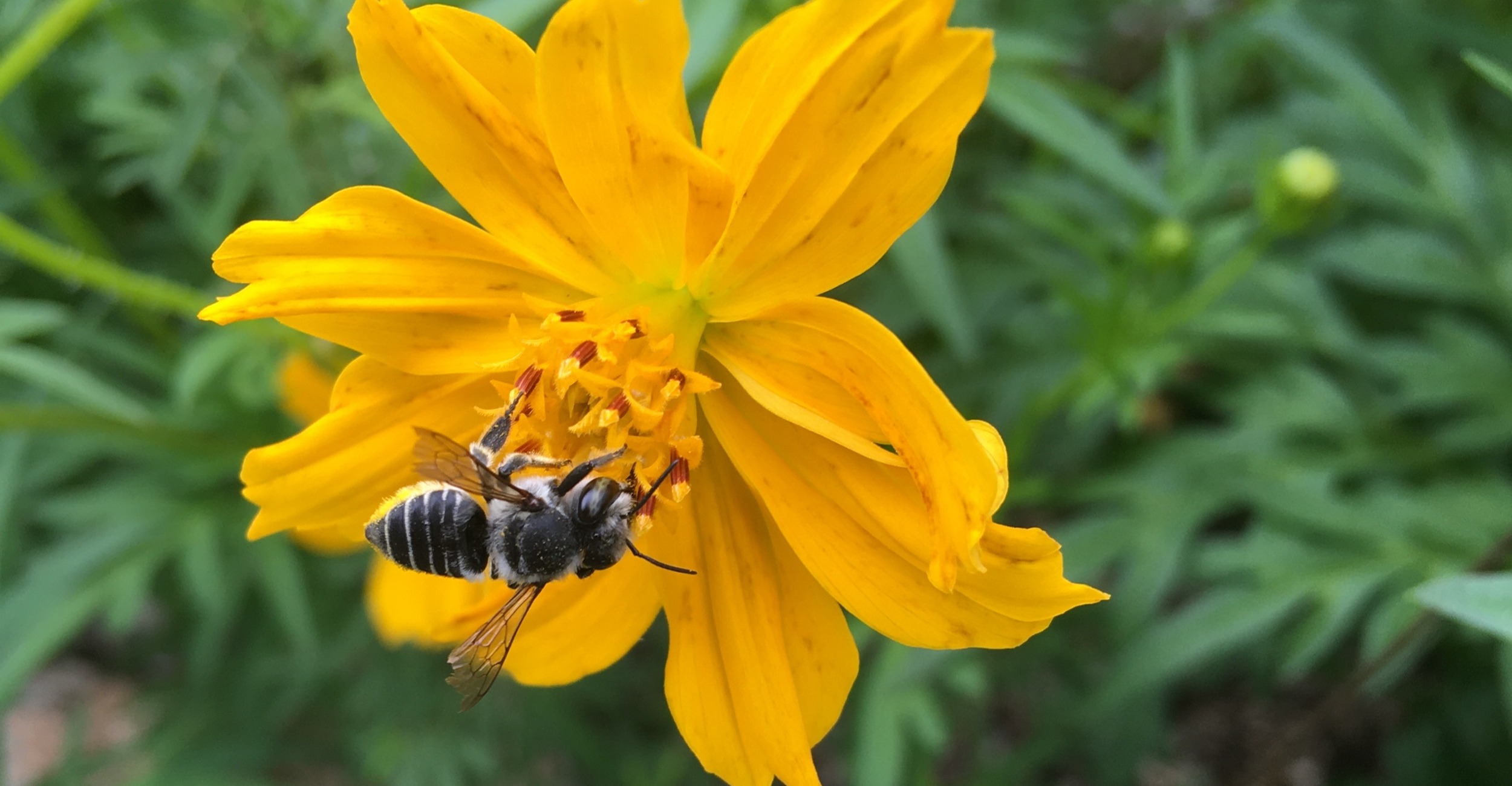
OSU earns Bee Campus USA certification
Monday, April 18, 2022
Media Contact: Jacob Longan | Coordinator of Communications and Marketing | 405-744-7497 | jacob.longan@okstate.edu
Oklahoma State University has received official certification as an affiliate of the Bee Campus USA program designed to utilize campus landscape resources for the benefit of pollinators.
OSU is the first university in the state to receive this designation and has also been recognized as a “Tree Campus” by the Arbor Day Foundation for the past 11 years.
Post-doctoral fellow Emily Geest and graduate student Teri Cocke, both in the OSU Department of Integrative Biology, spearheaded the university’s efforts to apply and receive the Bee Campus USA designation. They established a committee of students and faculty for the project while consulting with OSU’s offices of landscape services and sustainability to demonstrate the university’s active pollinator environment.
“As a Bee Campus USA affiliate, we’re recognized for the work we were already doing with pollinators,” Geest said. “We’re lucky to have an entomology department and some of the best pollinator researchers here at OSU. We encourage the planting of native gardens and habitats for native pollinators to help reverse pollinator decline.”
John Lee, interim director of landscape services at OSU, said the university prioritizes native plantings for sustainability and pollinator support. A native plant corridor is located on the north side of Edmon Low Library directly west of the intersection at Athletic Avenue and Hester Street.
“Our designer starts all landscape architecture projects with the consideration of incorporating native plants, and we intend to build on our native corridor location,” Lee said. “We want to assist campus organizations interested in pollination and native plant projects, and we hope to introduce new concepts in the future for supporting native pollinators and their habitats.”
Geest said the Bee Campus USA certification is a way to showcase OSU’s native plant corridor for pollinators and provide ways for the Stillwater and Payne County communities to learn about pollinators. Native bees, wasps and butterflies are responsible for most pollination, but flies, male mosquitoes, beetles and ants are also capable of the task. European honeybees in manmade hives are a non-native species of bee and pollinate natural habitats less than their native counterparts.
“We have activities planned like pollinator walks for the community and bee identification workshops that focus on bumble bees,” Geest said. “Learning about cute and fuzzy bumble bees is a good segue into the native bee world.”
Bee Campus USA and Bee City USA are initiatives of the nonprofit Xerces Society for Invertebrate Conservation. The certification programs provide a framework for communities to conserve native pollinators by increasing the abundance of native plants, providing nest sites and reducing the use of pesticides.
According to the Xerces Society for Invertebrate Conservation, pollinators such as bumble bees, sweat bees, mason bees, honeybees, butterflies, moths, beetles, flies, hummingbirds and many others are responsible for the reproduction of almost 90% of the world's flowering plant species.
Story By: Gail Ellis | gail.ellis@okstate.edu
